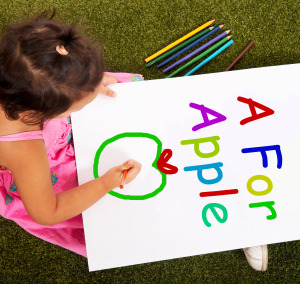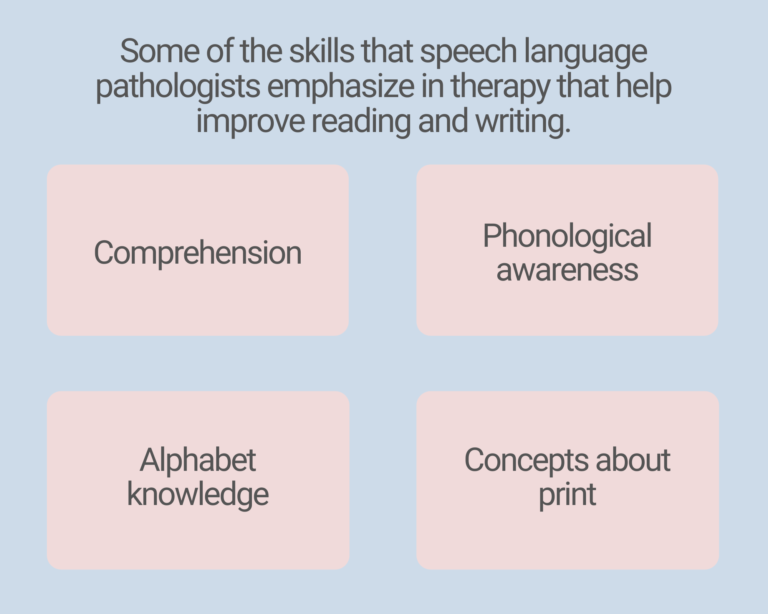Speaking - Listening - Reading
The Critical Connection
HOW IS LANGUAGE AND READING CONNECTED? HOW DOES A SPEECH LANGUAGE PATHOLOGIST (SLP) HELP WITH WRITING AND READING? HOW IS DYSLEXIA RELATED TO LANGUAGE?
Reading and Writing are secondary forms of Speaking and Listening.
Strong Speaking & Listening skills are critical for Reading and Writing development.
SLP's help to assure children develop strong Speaking and Listening Skills.

“The children most at-risk for reading difficulties in the primary grades are those who began school with less verbal skills, less phonological awareness, less letter knowledge, and less familiarity with the basic purposes and mechanisms of reading”
(Burns, Griffin, and Snow, 1999, p.15).
“Children’s oral language abilities are interwoven with learning to read and write.”
“Throughout the school years, oral language is both a means whereby children learn about reading and a goal of reading instruction.”
(Hiebert, Pearson, Taylor, Richardson, and Paris, 1998)
(Distinguished Educator Series, 2004, IRA)
Review of the National Early Literacy Panel Study funded by the National Institute for Literacy
Language & Reading The Critical Connection
Direct links to children’s eventual success in reading:
Language & Reading The Critical Connection
Direct links to children’s eventual success in reading:
- Alphabet knowledge
- Environmental print
- Invented spelling
- Listening comprehension
- Oral language and vocabulary
- Phonemic awareness
- Phonological short-term memory
- Visual memory and visual perceptual skills

Early Language Characteristics Related to Reading Disability: The Speech/Language/Reading Connection

- Speech Delays: Phonology, Semantics, Grammatical Structure, Pragmatics
- Difficulties in articulation
- Rhyming difficulties
- Child may substitute a similar word, using words like “stuff” or “things” to cover up retrieval difficulties.
- Difficulty in learning alphabet, both name and sound.
- Factors Influencing Reading Acquisition in Early Childhood
Early Signs of Trouble
Kindergarten
Failure to understand that words come apart; for example, that batboy can be pulled apart into bat and boy, and later on, that the word bat can be broken down still further and sounded out as: “b” “aaa” “t”
Inability to learn to associate letters with sounds, such as being unable to connect the letter b with the “b” sound.
Shaywitz, S. (2003) Overcoming Dyslexia.
First Grade
Reading errors that show no connection to the sounds of the letters; for example, the word big is read as goat.
The inability to read common one-syllable words or to sound out even the simplest of words, such as mat, cat, hop, nap.
Complaints about how hard reading is, or avoiding reading.
A history of reading problems in parents or siblings
Shaywitz, S. (2003) Overcoming Dyslexia.
First Grade
“Children’s oral language abilities are interwoven with learning to read and write.”
“Throughout the school years, oral language is both a means whereby children learn about reading and a goal of reading instruction.”
Hiebert, Pearson, Taylor, Richardson, and Paris, 1998

Call us at 512-250-8706 or email us at info@capitalareaspeech.com if you have any concerns or questions or to discuss if language therapy may benefit your child in strengthening reading and writing skills.
We look forward to hearing from you!